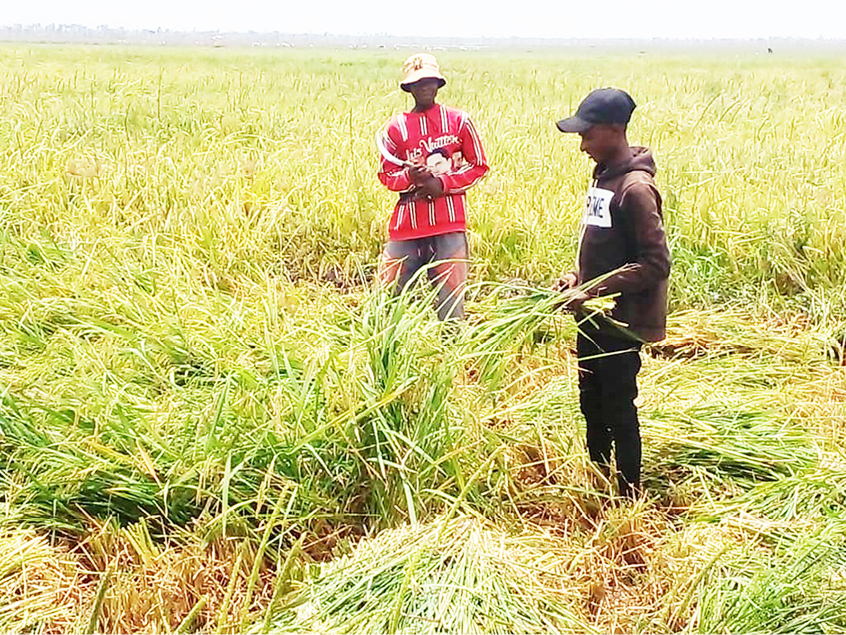Why previous govt’s interventions in agriculture failed – Farmers
Farmers across the country have attributed the failure of government’s intervention programmes in the agricultural sector to the non-involvement of key stakeholders in the sector while developing some of the programmes and policies. They noted that if the present federal government led by President Bola Tinubu does not change the trend, food insecurity in the […]

Farmers
Farmers across the country have attributed the failure of government’s intervention programmes in the agricultural sector to the non-involvement of key stakeholders in the sector while developing some of the programmes and policies.
They noted that if the present federal government led by President Bola Tinubu does not change the trend, food insecurity in the country would continue to heighten.
Daily Trust on Sunday had reported that different families in Nigeria are currently passing through difficult times as the cost of staple food is increasingly becoming unbearable.
Findings by this newspaper at various markets across the country had shown that prices of rice, beans, garri, flour and sugar, among others, are rising almost on a weekly basis.
Apparently reacting to Daily Trust on Sunday’s findings during a roundtable discussion in Abuja, the farmers said despite all funds expended in the sector, the price of commodity keeps rising with Nigeria always among the hotspots of global food security concerns.
The discussion, themed: “Food Security in Nigeria: Nurturing Sustainable Development” and organised under the aegis of Agriculture Development Project (ADP), had stakeholders in agricultural value-chain including seed producers, fertiliser producers, mechanization service providers, technology/Innovation support services, rice, maize, wheat, maize, cassava farmers, among others, in attendance.
Speaking to journalists, the convener, Agricultural Development Project, Sadiq Umar Daware, said most of the government programmes and projects since 1960, including that of Muhammadu Buhari’s administration have all been bedeviled by the same twin evil of poor policy formulation and faulty implementation.
According to him, if the right steps were taken, Nigeria could feed itself and many other countries as agriculture used to be its main economic mainstay.
“As key players in the agricultural space, we are not unaware of the many laudable projects and programmes by successive governments since independence.
“However, we have noted with great dismay that from the Regional Agricultural Programmes (RAP) under the administrations of Dr. Nnamdi Azikiwe and Sir. Abubakar Tafawa Balewa from 1960-1966 to the very recent Anchor Borrowers’ Programme (ABP) of the Muhammadu Buhari’s administration, they have all been bedeviled by the same twin evil of poor policy formulation and faulty implementation.
“Unfortunately, despite this glaring reality, all successive governments have opted for this faulty modus operandi which has always ended in failure of monumental proportions. We cannot continue doing the same thing while expecting a different outcome,” he said.
On his part, president, National Cotton Association of Nigeria (NACOTAN), Anibe Achimugu, said lack of access to good quality planting materials, high cost of farm inputs, fertilizer, agro chemicals were some of the challenges faced by farmers.
While stressing the need for farmers to be brought to the roundtable when developing intervention programmes, he stated: “We could do a lot better than what we’re doing. For instance, the flooding that has occurred in recent times has affected smallholder farmers in a great deal. It has also impacted on food security of the nation.”
